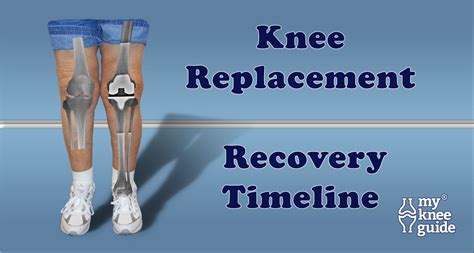How Long Should I Ice My Knee After Knee Replacement
Ronan Farrow
Apr 06, 2025 · 2 min read

Table of Contents
How Long Should You Ice Your Knee After Knee Replacement?
Following a total knee replacement, or knee arthroplasty, icing your knee is crucial for managing pain and swelling. But how long should you actually ice it? Let's explore the optimal icing strategy to ensure a smooth recovery.
Understanding Post-Surgery Swelling and Pain
After a knee replacement, swelling and pain are normal. Your body is undergoing significant trauma and repair. Icing helps reduce inflammation, a primary cause of post-surgical pain and stiffness. The process of icing also helps to constrict blood vessels, minimizing swelling and bleeding within the knee joint.
The Icing Protocol: A Detailed Guide
There's no one-size-fits-all answer. However, a common recommendation is to ice your knee for 20-30 minutes at a time, several times a day, during the first few days after surgery. This is particularly important in the immediate post-operative period.
The First Week: Frequent Icing
In the first week, you might find yourself icing your knee every 2-3 hours. Listen to your body – if the pain and swelling are intense, more frequent icing may be beneficial.
Weeks 2-4: Gradually Reducing Frequency
As the days progress into weeks two through four, you can gradually reduce the frequency of icing sessions. You might find that icing once or twice a day provides sufficient relief. Pay close attention to the level of swelling and pain.
Beyond Four Weeks: As Needed
After four weeks, icing is usually only needed if you experience a flare-up of pain or increased swelling. For instance, after a more strenuous physical therapy session, an ice pack can offer much needed comfort and help prevent swelling.
The Importance of Proper Icing Technique
Never apply ice directly to your skin. Always wrap the ice pack in a thin towel or use a gel ice pack designed for direct skin contact. Prolonged direct contact can cause cold injury, such as frostbite.
Signs That You Need to Adjust Your Icing
- Numbness or tingling: This indicates that the ice is applied for too long, or too directly, and should be removed immediately.
- Increased pain: If icing is causing increased pain, stop and consult your physical therapist or surgeon.
- Persistent swelling: If swelling remains high despite consistent icing, contact your medical team.
Beyond Icing: Essential Post-Surgery Care
Remember, icing is just one part of a comprehensive recovery plan. Other crucial aspects include:
- Elevation: Keep your leg elevated whenever possible to help reduce swelling.
- Medication: Take your prescribed pain medication as directed.
- Physical Therapy: Attend all your scheduled physical therapy appointments.
By following these guidelines and maintaining close communication with your medical team, you can ensure a swift and comfortable recovery after your knee replacement. Remember, every individual heals differently, so listen to your body and adjust your icing schedule accordingly.
Featured Posts
Also read the following articles
| Article Title | Date |
|---|---|
| How Many Amps Is A Heat Lamp | Apr 06, 2025 |
| How Long Should I Run My Salt Chlorinator In Winter | Apr 06, 2025 |
| How Long Will A Quarter Tank Of Def Last | Apr 06, 2025 |
| How Long To Let Shower Mortar Bed Dry | Apr 06, 2025 |
| How Long Is A Stapler In Inches | Apr 06, 2025 |
Latest Posts
-
How Many Passengers In Ford Explorer
Apr 07, 2025
-
How Many Passengers Chevy Traverse
Apr 07, 2025
-
How Many Passengers Chevy Tahoe
Apr 07, 2025
-
How Many Panels To Charge 200ah Battery
Apr 07, 2025
-
How Many Pairs Of Period Underwear Do I Need
Apr 07, 2025
Thank you for visiting our website which covers about How Long Should I Ice My Knee After Knee Replacement . We hope the information provided has been useful to you. Feel free to contact us if you have any questions or need further assistance. See you next time and don't miss to bookmark.
